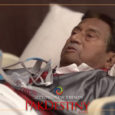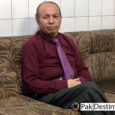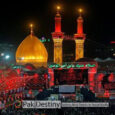
By Sarvat Hossein
I had a huge shock recently, when I watched a TV host/anchor in action, one who run an hour long programme without any strong, demonstrable evidence in support of what was being said during his show, and in the absence of any experts or relevant witnesses, given the subject matter which was discussed.
They eventually concluded or wrapped up the discussion sensationally, and in a very short period of time. In this instance, there was a faith healer, an astrologist, a religious scholar, a social worker and a reporter. An attempt was made to fill the blanks of vital missing information pertaining to events in the life of a deceased woman which, in most developed countries, can and often takes years to achieve.
Of course, there is a race among media houses to gain TRPs on sensational issues.
Recently, one of the popular TV channels aired a show which left me completely astounded. The clear-cut character assassination of a deceased young woman by so-called respectable citizens of the country was unbearable to witness. I was unable to put my finger on my lips and remain silent, as everybody else often appears to do here in Pakistan, pretending no injustice is happening around them.
“Let he who is without sin, cast the first stone”. That saying came to mind when I was watching that particular programme. It made me wonder If those panel members had never committed any sins in their lives.
Another pertinent issue was whether it was appropriate to discuss the issues raised in such a manner, in the absence of the deceased person who obviously, could not defend themselves. Interestingly, even Facebook recently announced the “Rights of dead”.
On this programme, the deceased girl’s life was dissected on a public platform, with disturbing scrutiny of her life by non-professionals. The participants were clearly not qualified to perform a psychological autopsy or forensic analysis of this late woman’s life and times.
An unidentified faith healer stated (with confidence) that the late woman was ‘not under any spiritual influence’ and simply was talking to another person. This healer claimed that the victim’s family had called him to find out whether she was under the influence of spirits.
One might question the extent of this degree of moral judgement; does this not break the defamation code? Is such a one-sided dissection, without talking to or the involvement of the person concerned, healthy?
Is this approach, by carrying out such an apparently detailed moral assessment of another, albeit deceased, akin to psychological autopsy by non-professionals, indeed, a group of self-acclaimed ‘moral police’ on TV?
I found the content of that programme toxic and draining, and I am sure that for many viewers, the sentiment would be the same.
A panel, which included two females, blamed the unfortunate victim (the subject who was discussed during the programme) for an affair she apparently had with his brother in-law, who killed her two days before her intended marriage.
The role played by the brother-in-law was not discussed, and interestingly, no family member was present during the show to put the victim’s position on record, if that were or could even be possible. This type of show will probably increase the TRP’s for the owner of the channel, but it will not lessen the negative contribution gender related crime offers to our society.
Incidentally, I was under the impression that the TV anchor was supposed to be a ‘neutral referee’, there to ensure fairness during discussions and to facilitate a rational discussion of verifiable facts or issues.
PEMRA needs to focus its editorial attentions on disturbing programmes of this type and perhaps re-consider whether it is appropriate to continue to air this type of unchallenged content. Pak Destiny







